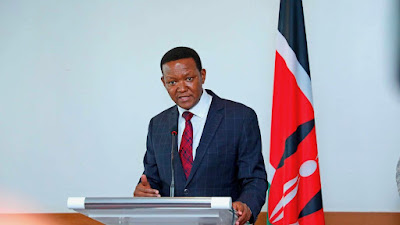The deal includes attack aircraft and drones, sources say. Jets and drones could revive Sudan army's fortunes. Pakistan's weapons industry is on the rise. It was a "done deal", said Aamir Masood, a retired Pakistani air marshal who continues to be briefed on air force matters. Read full story.
From Reuters
By Saad Sayeed and Mubasher Bukhari
Published Friday 09 January 2026 1:35 PM GMT
Updated 09 January 2026 - full copy:
Exclusive: Pakistan nears $1.5 billion deal to supply weapons, jets to Sudan, sources say
Summary
- Deal includes attack aircraft and drones, sources say
- Jets and drones could revive Sudan army's fortunes
- Pakistan's weapons industry is on the rise
ISLAMABAD, Jan 9 (Reuters) - Pakistan is in the final phases of striking a $1.5-billion deal to supply weapons and jets to Sudan, a former top air force official and three sources said, promising a major boost for Sudan's army, battling the paramilitary Rapid Support Forces.
Their conflict has stoked the world's worst humanitarian crisis for more than 2-1/2 years, drawing in myriad foreign interests, and threatening to fragment the strategic Red Sea country, a major gold producer.
The deal with Pakistan encompasses 10 Karakoram-8 light attack aircraft, more than 200 drones for scouting and kamikaze attacks, and advanced air defence systems, said two of the three sources with knowledge of the matter, who all sought anonymity.
It was a "done deal", said Aamir Masood, a retired Pakistani air marshal who continues to be briefed on air force matters.
Besides the Karakoram-8 jets, it includes Super Mushshak training aircraft, and perhaps some coveted JF-17 fighters developed jointly with China and produced in Pakistan, he added, without giving figures or a delivery schedule.
Pakistan's military and its defence ministry did not immediately respond to requests for comment.
A spokesman for Sudan’s army did not immediately respond to a message requesting comment.
Assistance from Pakistan, especially drones and jets, could help Sudan's army regain the air supremacy it had towards the start of its war with the RSF, which has increasingly used drones to gain territory, eroding the army's position.
Sudan's army accuses the RSF of being supplied by the United Arab Emirates, which has denied supplying weapons.
POSSIBILITY OF SAUDI BACKING
The sources did not say how the deal was being funded but Masood said it was possible the finances would come from Saudi Arabia.
"Saudi Arabia may favour and support all the favourable regimes in Gulf for procurement of Pakistani military equipment and training," he said.
One of the sources said the Saudis brokered the deal but added there was no indication they were paying for the weapons. Another source said Saudi was not providing funds.
Reuters has reported that Islamabad is in talks with Riyadh for a defence deal that could be worth between $2 billion and $4 billion.
Masood said the weapons for Sudan could be included in such an agreement, without confirming discussions with Saudi Arabia.
The Saudi government media office did not immediately respond to a request for comment.
Egypt, Saudi Arabia and the UAE are part of the U.S.-led quad grouping of nations that has tried to push Sudan's army and the RSF towards peace talks.
On recent visits, Sudan's army chief Abdel Fattah al-Burhan requested Saudi assistance in the war, according to Sudanese and Egyptian sources.
Riyadh and Abu Dhabi are embroiled in a major feud sparked by recent events in Yemen.
The two most powerful countries in the Gulf have sharp differences on a range of volatile Middle East issues, from geopolitics to oil output.
Their difference burst into the open with an advance of UAE-backed southern Yemeni separatists in early December that brought them into conflict with Saudi-backed forces.
PAKISTAN'S DEFENCE AMBITIONS
The deal is another feather in the cap for Pakistan's growing defence sector, which has drawn growing interest and investment, particularly since its jets were deployed in a conflict with India last year.
Last month, Islamabad struck a weapons deal worth more than $4 billion with the Libyan National Army, officials said, for one of the South Asian nation's largest arms sales, which includes JF-17 fighter jets and training aircraft.
Pakistan has also held talks with Bangladesh on a defence deal that could includes the Super Mushshak training jets and JF-17s, as ties improve ties with Dhaka.
The government sees Pakistan's burgeoning industry as a catalyst to secure long-term economic stability.
Pakistan is now in a $7-billion IMF programme, following a short-term deal to avert a sovereign default in 2023. It won IMF support after Saudi Arabia and other Gulf allies provided financial and deposit rollovers.
Reporting by Saad Sayeed in Islamabad and Mubasher Bukhari in Lahore; Additional reporting by Ariba Shahid, Khalid Abdelaziz and Ahmed Shalaby; Editing by Clarence Fernandez
Our Standards: The Thomson Reuters Trust Principles.
View original: https://www.reuters.com/business/aerospace-defense/pakistan-nears-15-billion-deal-supply-weapons-jets-sudan-sources-say-2026-01-09/
Ends

.jpeg)






.jpeg)